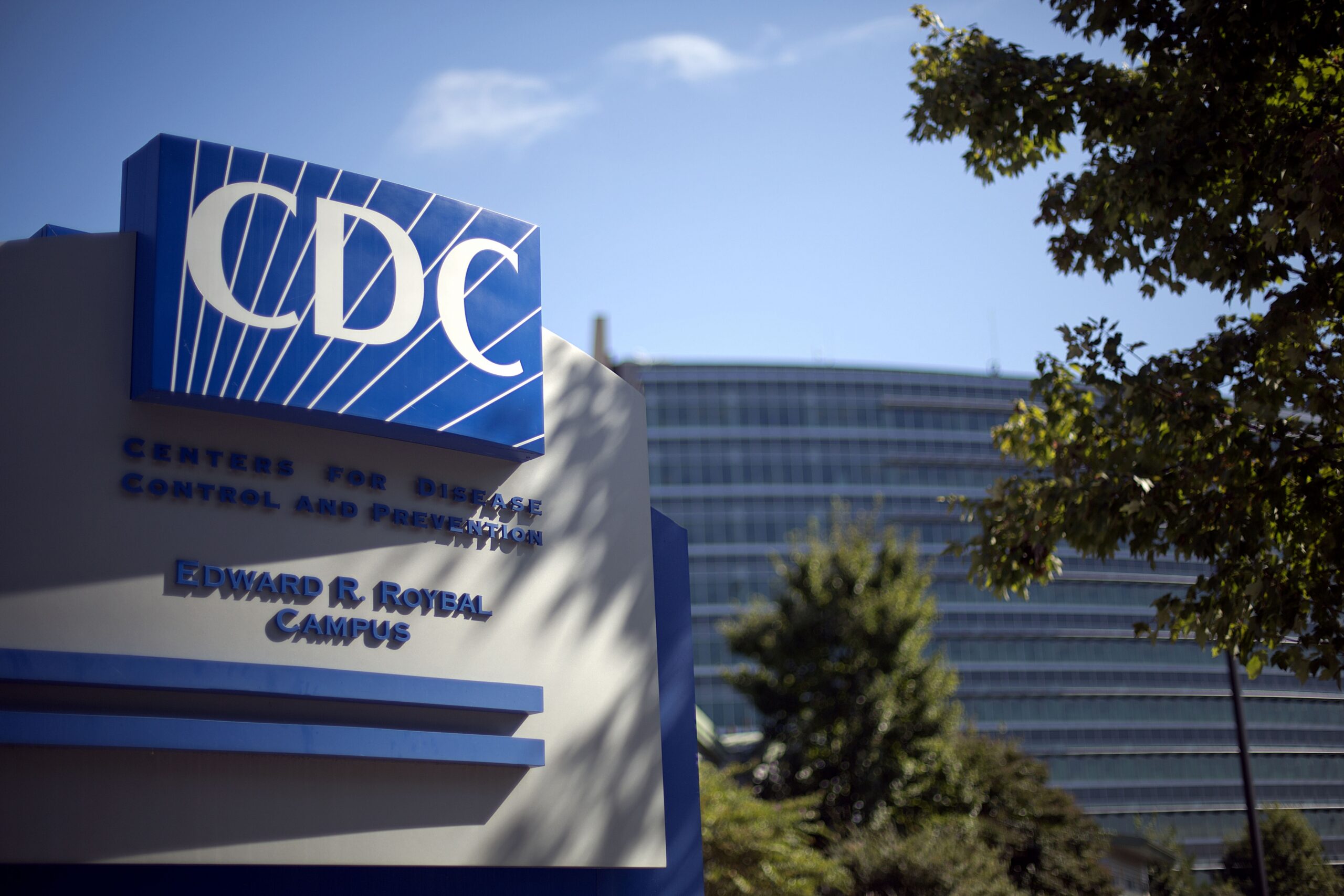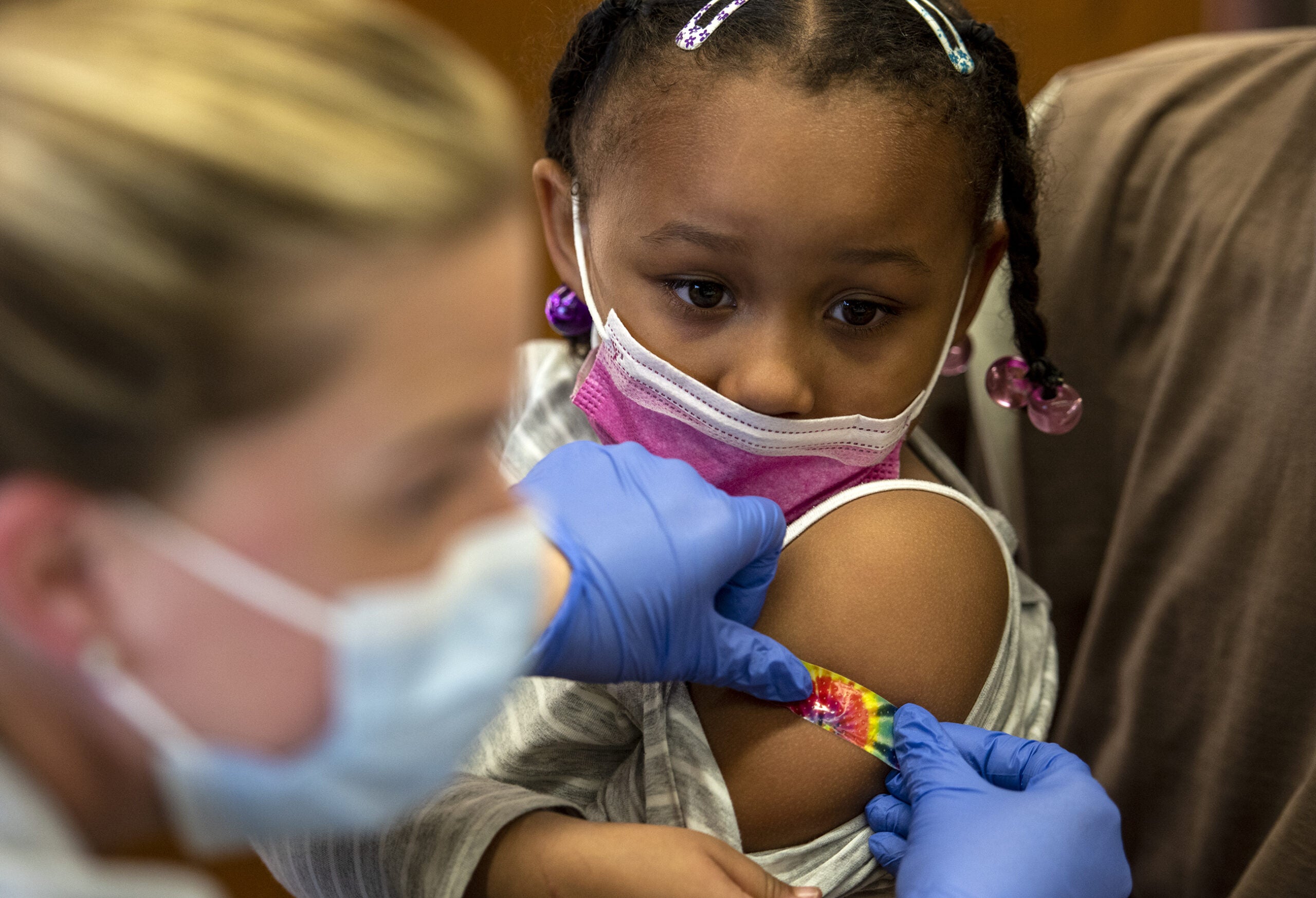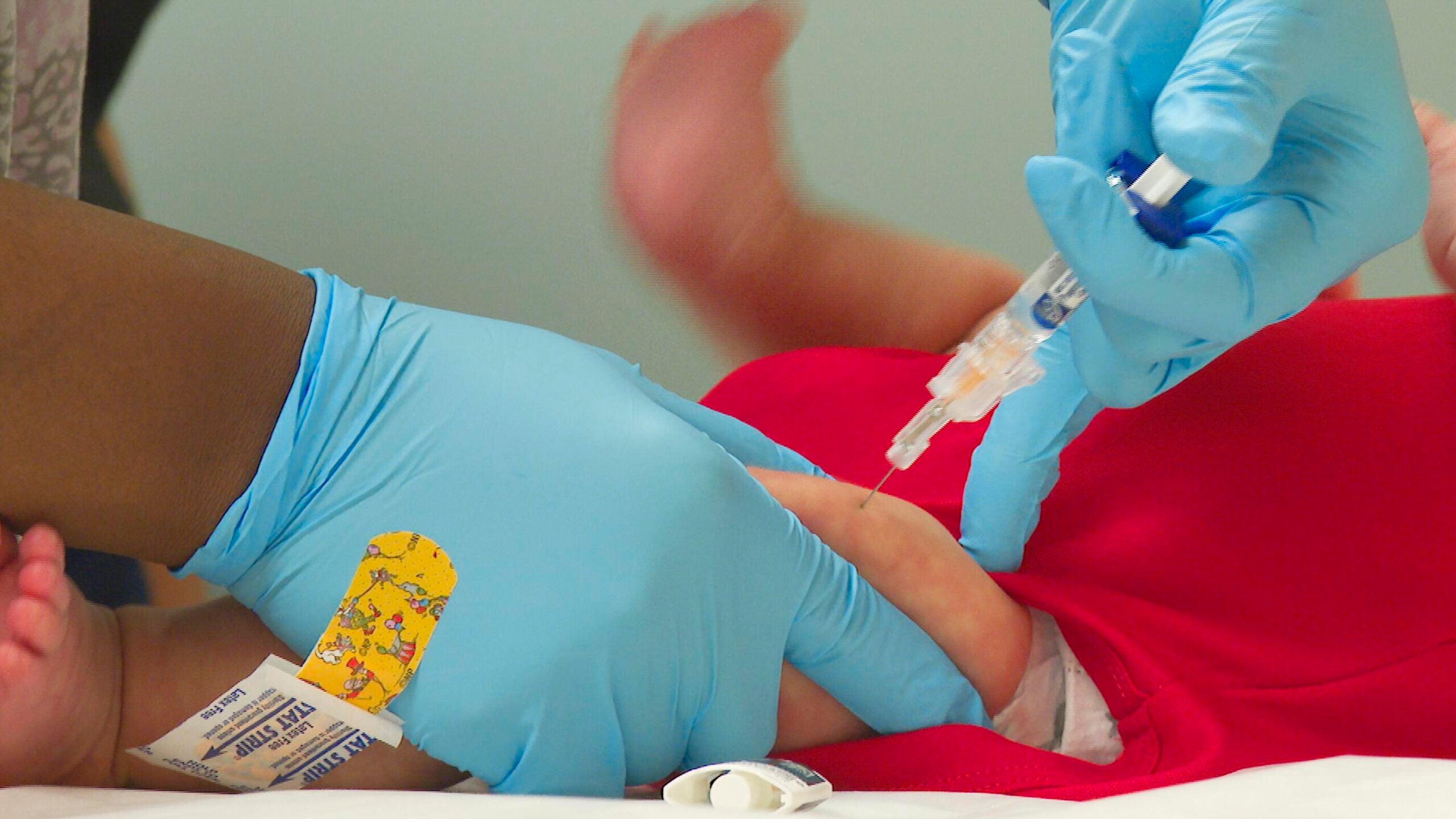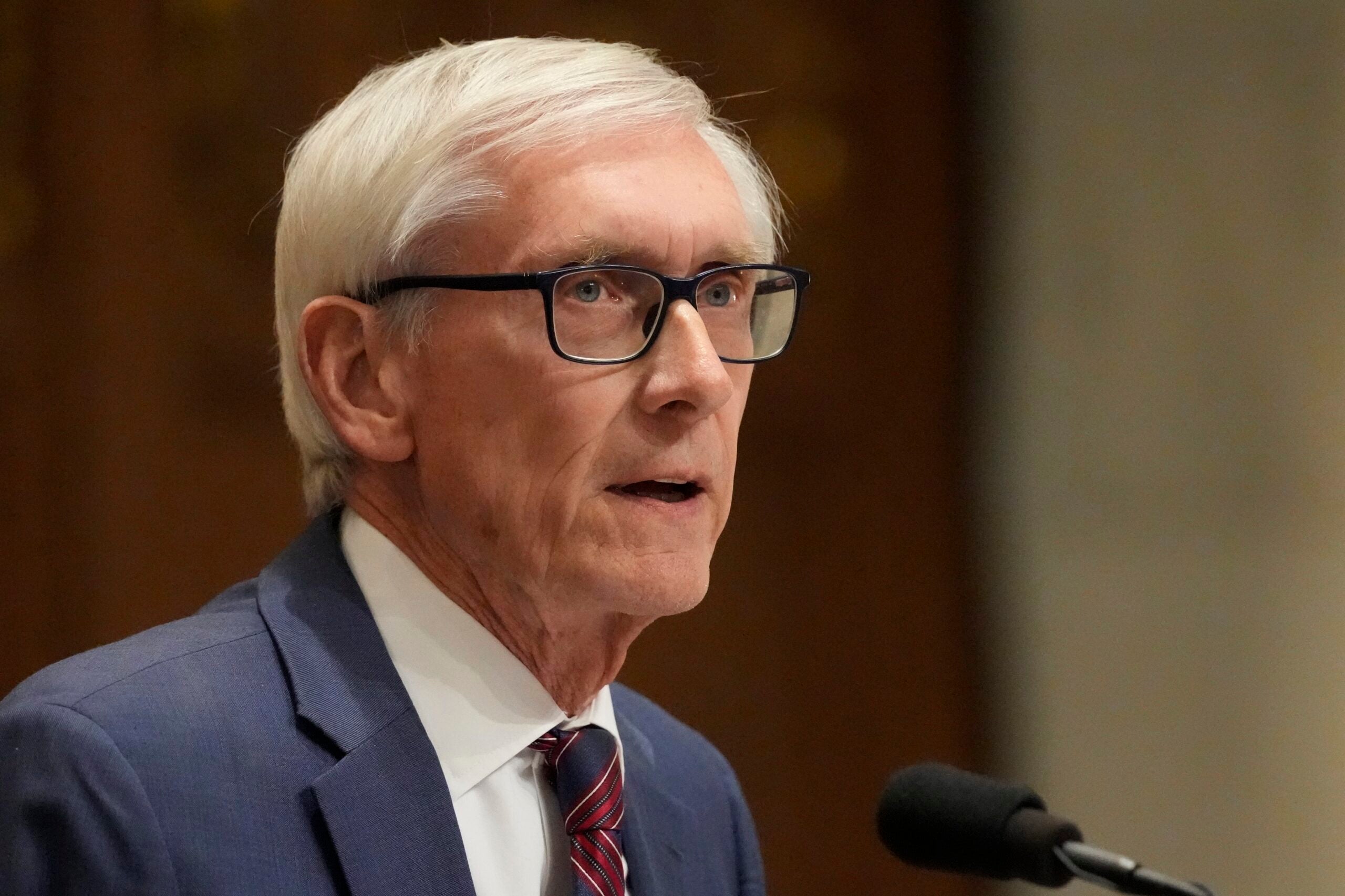Last week, U.S. Health and Human Services Secretary Robert F. Kennedy Jr. removed all 17 members of the agency’s Advisory Committee on Immunization Practices from their positions. The former chair of the committee says it’s an alarming change from how the committee normally functions.
Wisconsin’s Dr. Jonathan Temte was involved with the committee, which advises the Centers for Disease Control and Prevention on federal vaccine guidelines and requirements, from 2004 to 2015 and chaired it from 2012 to 2015.
“I’ve spent about half my adult life working with the Advisory Committee on Immunization Practices, and it’s an organization that I know well and care greatly about,” Temte told WPR’s “Wisconsin Today.” “Any changes within ACIP send shock waves through the medical and public health community.”
News with a little more humanity
WPR’s “Wisconsin Today” newsletter keeps you connected to the state you love without feeling overwhelmed. No paywall. No agenda. No corporate filter.
During his confirmation process earlier this year, Kennedy indicated to Republican Senator and physician Bill Cassidy of Louisiana that he would not make any changes to the committee.
But, in a June 9 op-ed published in The Wall Street Journal, Kennedy wrote that the committee was “plagued with conflicts of interest.” He has since named eight new appointees, many of whom were critical of federal COVID-19 prevention guidelines and mRNA vaccines during the pandemic.
Temte, who is a professor of family medicine and community health and the associate dean for Public Health and Community Engagement for the University of Wisconsin-Madison’s School of Medicine and Public Health joined “Wisconsin Today” for a look at the changes to the federal Advisory Committee on Immunization Practices, and how those changes might affect access to vaccines in Wisconsin.
This interview has been edited for brevity and clarity.
Rob Ferrett: Secretary Kennedy said he’s replacing the committee in part because it was “plagued with conflicts of interest.” What is the process of disclosing and preventing conflicts of interest on the committee, in your experience?
Jonathan Temte: The best way to not get on ACIP is to have conflicts of interest with vaccine manufacturers. I sat for a number of years on the steering committee of ACIP, where we would vet potential nominees and come up with a short list of two nominees for every opening. We rigorously screened for conflicts of interest. And when there was a potential conflict of interest in members who actually got on the committee, they were prevented from voting on any matter for which they had either a conflict of interest or a perceived conflict of interest. So the rigor was really, really high. This claim of high levels of conflict of interest is coming out of left field, and we don’t know where this is from.
RF: Secretary Kennedy dropped all 17 members of this committee at once and brought in a group of eight new appointees in pretty short order. How does that contrast with how this usually works?
JT: ACIP has members that are required to overlap terms. Typically a person will have a four year term, and approximately one quarter of the ACIP members would rotate off each year, and we would get four new ones.
When I first came aboard, the learning curve was nearly vertical. It was a lot of information to try to take in. And so it’s really important to have an institutional memory. The CDC, by nature, is a very, very cautious and precise organization, and things are done very, very carefully in terms of how information is put together and how it is packaged for the public. This is a really radical change, and I worry that it is being done too quickly, without appropriate scrutiny of the potential outcomes.
RF: One of the arguments from Secretary Kennedy and others in his camp is that we need viewpoint diversity on the committee. Could having critical voices allow the committee to examine vaccines more rigorously?
JT: We’ll see what comes out of this [next] meeting. For example, one of the votes is going to be on thimerosal-containing influenza vaccine recommendations. I hold this up as a litmus test because thimerosal in vaccines is settled science from 20 years ago. This is a Mercury component in very, very low levels. The typical amount in the few vaccines that do contain it is less than you would get from eating half a can of tuna. But if ACIP votes to suspend thimerosal-containing influenza vaccines, it would be absolute proof, in my mind, that they are no longer using an evidence-based framework to make vaccine recommendations.
RF: Here in Wisconsin, as we’re looking at our fall vaccine lineup, what do decisions made by this committee mean when it comes to access to vaccines and insurance coverage?
JT: ACIP recommendations have a statutory component requiring insurers to cover vaccines that are recommended by ACIP at full cost. On top of that, recommendations that apply to children require the government to pay for the vaccines for children program for anyone who meets financial requirements — basically, children living in poverty. And we have yet to see what implications the changes at ACIP are going to have on that.
RF: Last month, federal health officials announced that COVID vaccines are no longer on the list of recommended vaccines for healthy pregnant women and children. What do you think about that decision?
JT: First, with pregnant women, we know that COVID during pregnancy is very high-risk. Also, we know that one of the groups that are [frequently] hospitalized are newborn infants through the first six months of life. Those are individuals that cannot be vaccinated, but if the mother receives a vaccine during pregnancy, the baby is born with maternal antibodies and protection for the first six months of life.
Almost all the professional societies out there — [like] the American Academy of Pediatrics, the American College of Obstetrics and Gynecology and the American Academy of Family Physicians — are strongly opposed to the decision-making that was not done transparently. It was not evidence-based, and it caught our COVID-19 vaccine work group entirely by surprise.
I will say that here in Wisconsin, our Department of Health Services has come out strongly in [favor] of maintaining vaccination for both pregnant women and children.
RF: Wisconsin kids have the second-lowest measles vaccination rate in the nation, according to data from the Wisconsin Department of Health Services. What are you watching for now from this partially-reconstituted committee when it comes to measles and low vaccination rates?
JT: [This is] what I would call a public health emergency across the country, with the highest level of measles cases we’ve had since 2019 — and we’re likely to surpass even that.
On the ACIP agenda for June 25 and 26 there is no mention of measles whatsoever, except for a session on the measles, mumps, rubella and varicella vaccine, which is aimed at [vaccine] safety as opposed to confronting this public health emergency. So this is very atypical from my experience with ACIP, which will respond to emerging threats with public discussion of where we are and where we should be going.






